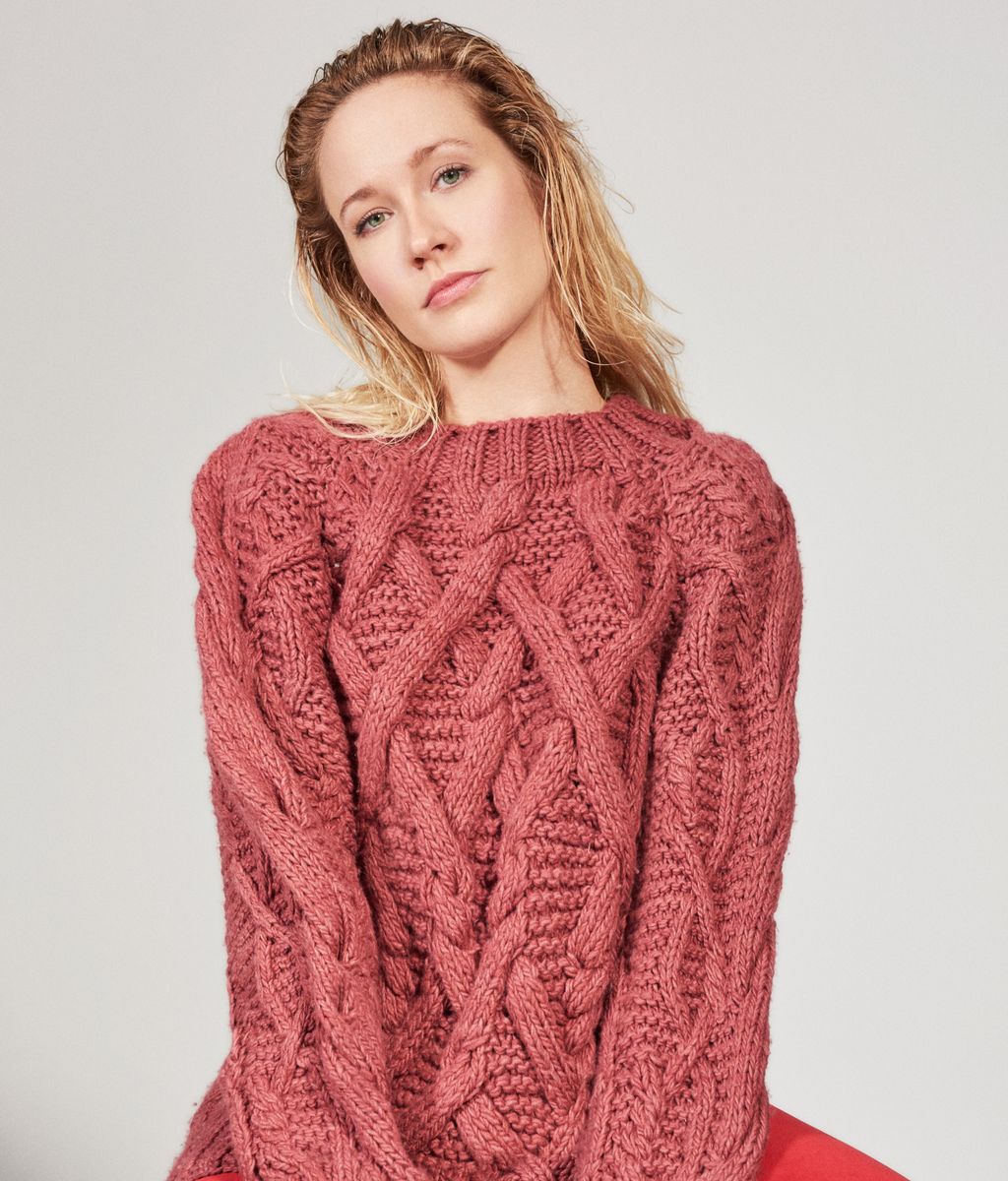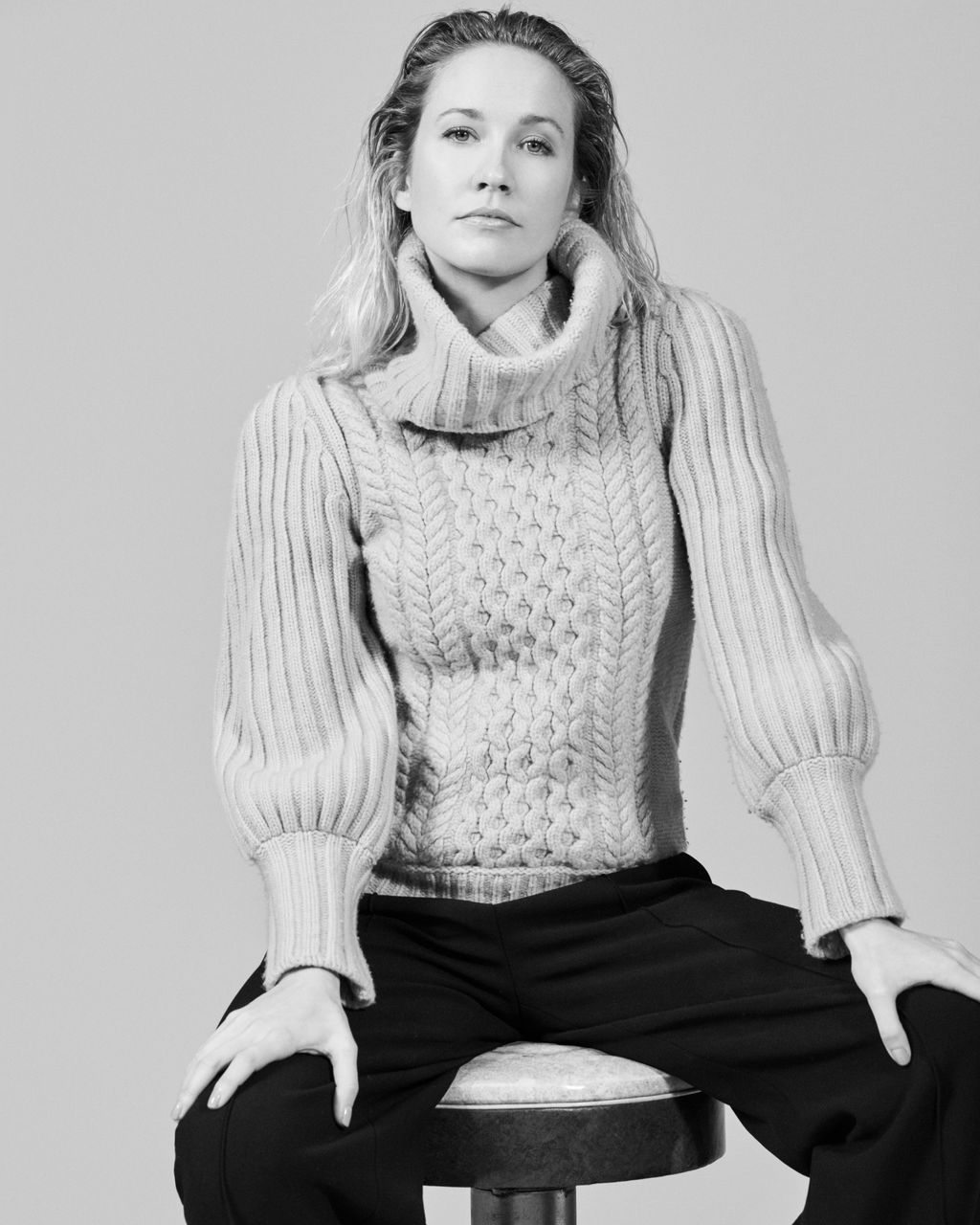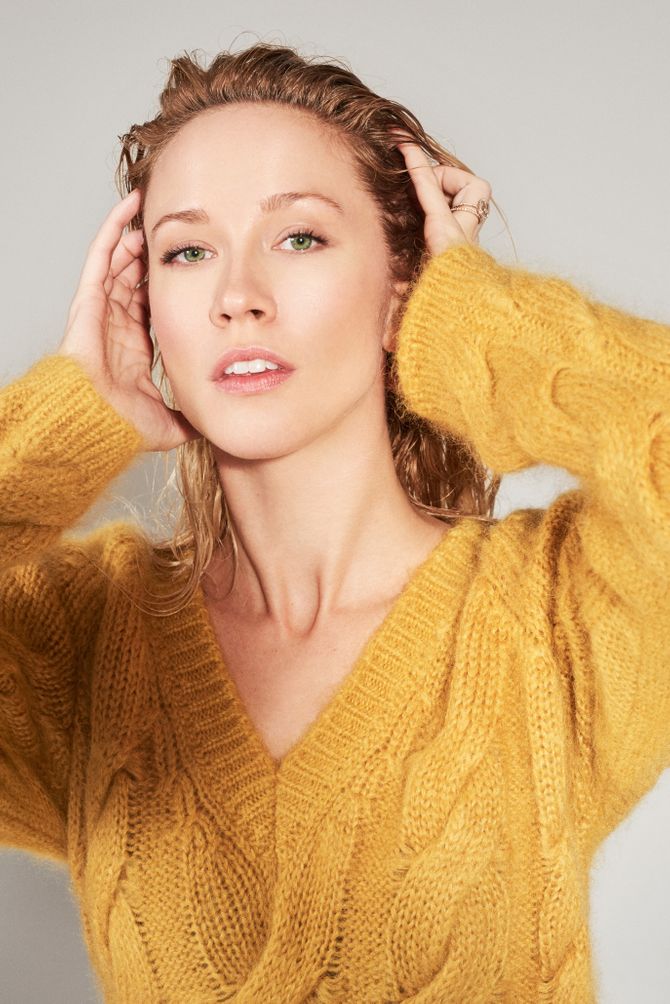In the season finale of Good Girls Revolt — Amazon’s canceled-too-soon drama about a sex discrimination lawsuit at an NYC newsmagazine in the late ’60s — Jane Hollander finally gets angry. Played by Anna Camp, Jane is a line-toeing woman of privilege, with rich parents and flawless hair and a compliant demeanor, and for most of the season, we watch her resist joining the lawsuit prepared by other female employees of News of the Week (the premise is inspired by a real-life lawsuit that took place at Newsweek in 1970). But then a male superior does something awful to her, and Jane realizes that no amount of individual effort can break through the systemic inequality she faces. When the women hold a press conference announcing their suit, it’s Jane who gives voice to their rage. “We have asked sweetly to be allowed to prove ourselves at the office. We have asked permission to be treated equally to the men we work next to,” says Jane, to a crowd of gathered press. “Enough.”
Jane’s emotional journey — cracking open her polished, good-girl shell to reveal something raw, angry, and unapologetic — is a something of an Anna Camp specialty. “I tend to get cast as the uptight, blonde, privileged woman who you just want to see let it all go,” Camp acknowledges over lunch at the Spotted Pig one chilly November afternoon. “Women who are covering a lot, holding back from being their true selves.”
Camp has built a career playing characters that seem — at least at first — like perfectly coiffed avatars of all-American femininity: the self-righteous church lady (Sarah Newlin on True Blood); the ice-queen trophy wife (Deirdre Robespierre on Unbreakable Kimmy Schmidt, brilliantly subversive); the type-A a capella squad leader (Aubrey Posen in Pitch Perfect). But the best part of an Anna Camp role is the moment when her character can’t keep up the façade anymore, and what’s inside comes spilling out — a deranged Sarah smooching a decapitated head or stabbing a woman to death with her own high-heel, or Aubrey “blowing chunks” onstage during an a capella performance. Unfortunately, viewers never got a chance to find out what Jane Hollander could do once the full force of her feminist outrage was unleashed. Shortly after the show premiered last fall, Amazon head Roy Price, who has since been fired for alleged sexual harassment, pulled the plug, reportedly having never watched a single episode.
“When the show was gutted, we were like, This is just the beginning of the story. My character was just starting to get woke to what was going on, so I was excited to see what was going to happen to her and how she was going to take her courage and independence and use it in the next season,” says Camp, her cheeks flushing with righteous indignation. “To have it so abruptly taken away from all of us was really weird. It felt pointed, even though it might not have been. Or maybe it was, we don’t know. It felt like: No. You don’t get to do that anymore.”
Camp was raised in Aiken, South Carolina, by a bank-executive dad and a Democratic Party volunteer mom; a self-proclaimed “big theater nerd,” she talks with reverence about her first junior-high trip to New York to see The Fantasticks, Charlie Brown, and Chicago on Broadway, describing how she waited outside the stage door for autographs and cried when she had to get back on the plane to go home. Her blonde good looks have often led her to be typecast as a certain familiar type of princess — but, settling in to chat over deviled eggs and pumpkin soup, Camp comes across less as queen bee than earnest theater kid. Currently, she’s appearing in a Broadway revival of J.B. Priestley’s Time and the Conways, and she says she still gets nervous ahead of every performance. “Every time I come offstage, I beat myself up a lot, just the way Aubrey does,” she says. “I’m always over-analyzing every performance I ever do in this show and going: How can I make it better? I’m going to fix it and make it better!”
Onscreen, Camp has been a working actress and familiar face for years, and has racked up recurring parts in countless staples of the prestige-TV era: True Blood, Mad Men (as Don’s three-episode fling Bethany Van Nuys — her characters always get the best blue-blood names), The Mindy Project, and The Good Wife, as well as movies such as The Help. But her biggest break came in the form of a surprising hit: the 2012 a capella musical Pitch Perfect, directed by Jason Moore and starring Anna Kendrick. Originally made for $17 million, Pitch Perfect went on to become the second-highest-grossing musical comedy ever, spawning two sequels (Pitch Perfect 3 comes out December 22), and continuing to be held up, along with Bridesmaids, as enduring proof that, duh, there is an audience for women-led, women-directed movies about fun, friendship, and the joys of vocal harmonizing. The upcoming film will follow Aubrey and the rest of the Barden Bellas (played by Kendrick, Rebel Wilson, Brittany Snow, and Hailee Steinfeld) as they navigate post-college life, and unite for one final a capella extravaganza. Says Camp: “Aubrey gets to let her hair down a little bit.” (Also: This time, it’s an action film.)
Camp clearly feels a lot of affection for the Pitch Perfect franchise, and not just because the a capella world’s unabashed uncoolness speaks to her theater-nerd heart: She also met her husband, co-star Skyler Astin, while shooting the first film. (Fellow Bella Brittany Snow was among her bridesmaids.) To an avid teenage following, Camp and Astin are the franchise’s beloved First Couple — “mom and dad,” as fans put it in their Instagram comments — and they are deeply, demonstratively in love. “If we’re in the same room, I have to be holding his hands or touching him in some way because I feel like if I don’t, I feel like I’m floating out into the universe,” Camp explains. “It’s like Avatar, you know, when they plug in? That’s how we feel!”
Talking about things she loves — her Pitch Perfect castmates, her aca-dorable marriage to Astin, her puggle Rocky, hiking, cooking, drinking wine, the beach — Camp is relentlessly sunny and upbeat. Still, for her, the many frustrations of this brutal, draining year were encapsulated in the cancellation of Good Girls Revolt, something she’s eager to discuss. She remembers being in D.C. for a radio interview with her castmates after Trump won the election. “Everyone was so shell-shocked. But we were like: Well, at least we have our show.” When it was unexpectedly canceled soon after, despite solid buzz and positive viewer numbers (Amazon has claimed the show didn’t meet viewer targets, but that has been heavily disputed by the show’s creators; the network doesn’t release raw numbers), she was stunned. Creator and EP Dana Calvo accused Amazon head Roy Price of canceling the show without having seen it, alleging also that there were no women in the room when the decision was made. “Not one single woman present. It gives me chills! I’m so upset about it,” Camp tells me. And, when Price was unmasked as an alleged sexual harasser, Camp and her co-stars felt a renewed sense of outrage at the cancellation.
“I wasn’t shocked, to be honest,” Camp says now. “I haven’t had that many run-ins with him, but sometimes you can just sense it. I was like, Of course. That’s why our show was canceled four weeks after they premiered it online.” Camp repeats Calvo’s allegation — that Price reportedly had never seen the show before pulling the plug. “He didn’t know the characters’ names! Apparently — this is another rumor, but I don’t care – they had to cut together a sizzle reel of the show for him to decide whether or not he wanted to pick it, because he didn’t watch it.”
As well as the obvious irony of a show about workplace sexual harassment being canceled by an alleged sexual harasser, the most frustrating thing for Camp and her fellow stars is that Good Girls Revolt (based on Lynn Povich’s book The Good Girls Revolt: How the Women of Newsweek Sued their Bosses and Changed the Workplace) is so achingly relevant to what’s taking place in the news cycle right now. In a recent piece for this magazine, Rebecca Traister wrote about the reemergence of “’70s-style, organic, mass, radical rage” in our post-Weinstein moment, and Good Girls Revolt focused on a moment in which that “radical rage” first emerged: a moment, much like the current one, when women were first finding words to describe the emotional, psychological, and material toll of living in a system rigged against them.
In the episode that marks the turning point for Jane, her boss — whom she has sought out with a pitch, in a last-ditch attempt to be allowed to write for the magazine — pulls out his penis in front of her at an art gallery. The next day, he gives her story idea away. It’s a pivotal moment in Jane’s process of realizing just how little she is valued by the men she works with, and one that the show’s creators had to fight to include. “Some of the higher-ups, I don’t know specifically who, they didn’t want [the scene]. And we had to shoot an alternate version where they just wanted him just to graze the side of my leg — as if that’s what sexual harassment is. And that is not the same scene! We fought and fought and fought to include it,” Camp says, shaking her head in astonishment. This was, of course, months before we all heard about Harvey Weinstein masturbating into a potted plant or Louis C.K. pulling his dick out in front of young comedians. “As Jane, I just remember feeling so frozen,” she says, describing how she acted through a scene that has become all too familiar from recent news reports.
Recently, the show’s creator and stars have renewed their crusade to get the show picked up again, and Camp — tweeting under the hashtag #savegoodgirlsrevolt — has been leading the charge. While Camp says she is unsure of the show’s fate, TriStar Television head Suzanne Patmore Gibbs, who developed the show, told Deadline this week they are currently shopping a pitch for the second season out to a number of interested prospective buyers. If the show is brought back, Patmore says, “It’s a lot different than the pitch that we walked into Roy with, because we’re unchained, which is liberating.”
Or as Camp puts it: “If it comes back, great. If not, at least we’re going down in a blaze of glory.”
Like most actresses, Camp has experienced a constant low-level hum of sexual harassment throughout her career — she recalls, with a bemused smile, being called “doll” and “honey” on the Good Girls Revolt set, right after shooting scenes describing that same injustice — and feels glad that more people are acknowledging those realities. She’s also started to think differently about the turns her own career has taken, and is animated by a desire to break away from the usual uptight blondes. “I have made a pact with myself that I am not going to play the same role again. I have reached my max creatively with those types of roles — I just can’t do it anymore.” While she says she’ll happily reprise the role of Jane if someone gives the show another shot, the kind of role she’d like to play in the future is a character like Good Girls’ Patty (Genevieve Angelson) — who leads the charge instead of coming around at the 11th hour. “It’s interesting, people want to put women into a box, and actresses into a box. Like: No, she can’t do anything else. She’s the wrong type,” she said. “I want to play somebody who’s not as afraid. I’ve played so many women who are afraid of what they have inside them, that it takes them so long to finally get there, but I want to play someone who is unapologetically already there.”
Lead image credits: Ulla Johnson Pullover, $795 at Ulla Johnson.
Correction: This article originally stated that Elizabeth Banks directed Pitch Perfect, which is incorrect. Jason Moore directed Pitch Perfect; Banks directed the sequel.
Production Credits:
Photos by PJ Spaniol III
Styled by Lindsay Peoples-Wagner
Produced by Biel Parklee
Hair by Anthony Campbell using Oribe at the Wall Group
Makeup by Misha Shahzada using Diorshow at See Management
Photography Assistants: Jeffrey Rose, Cal Christie, Lizzy Meyers


